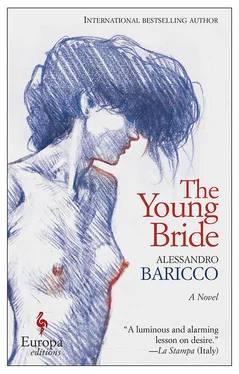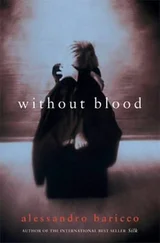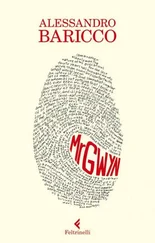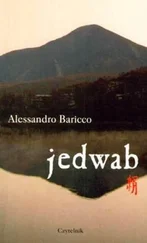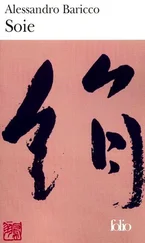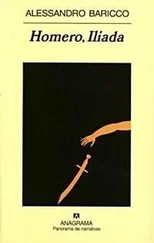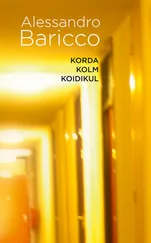For what? the young Bride asked.
I’ve ruined everything for you, he said.
And the young Bride understood that it was true. First the surprise, then the instinct to make herself useful, had kept her from realizing that the Uncle’s arrival had marred something perfect, and diverted a flight that was gliding along without errors. She saw again all her magnificent gestures, which she hadn’t stopped performing, and understood that since the arrival of that man they had been done without happiness and without faith. I’ve stopped waiting, she said to herself.
She went back down without saying a word, and walked through the rooms, furious at first, then desolate. She stared at the door for a long time, until she understood with inexorable lucidity that it had opened to let in the wrong man, at the wrong moment, for the wrong reasons. She went so far as to think that, in some mysterious way, the Son must have realized it, while he was traveling on the road that would take him home: she saw him at the moment when he set a suitcase down on the ground, let a train leave without getting on, stopped a car and turned off the engine. No, please, no, she said to him. Please, she said to herself.
When the Uncle came downstairs after six days, perfectly shaved and rather elegant in a tobacco-colored suit, he found her sitting on the floor, in a corner, her face unrecognizable. He looked at her just for an instant before heading to the kitchen, where he fell asleep. He hadn’t eaten for a long time: finally he did, with a certain moderation, still sleeping. Then he went to the cellar, and disappeared there for two or three hours: the time required for him to choose a bottle of champagne and one of red wine. He returned to the kitchen, where he put the champagne on ice. Without resting even for a moment, he uncorked the bottle of wine and let it breathe on the table. Worn out by his labors he dragged himself to the dining room and dropped into a chair, just in front of the young Bride. He slept for ten minutes, then opened his eyes.
Tomorrow they return, he said.
The young Bride nodded. She might also mean that nothing mattered to her.
I wonder if you have any engagements for this evening, continued the Uncle.
The young Bride said nothing. She didn’t move.
I take it as a no, the Uncle informed her. In that case, I would be honored to invite you to dinner, if it would not cause you uneasiness or, indeed, distress.
Then he fell asleep.
The young Bride stared at him. She wondered if she hated him. Yes, of course, she hated him: but no more than she hated everyone. It seemed to her that neither sweetness, nor folly, nor beauty remained to her, anywhere, ever since they had all agreed to devastate her soul. Could she do anything other than hate them? If you have no future, hating is an instinct.
Where do you want to take me? she asked.
She had to wait ten minutes for an answer.
Oh, nowhere. I thought of dining here, I’ll see to everything. I promise you it will be of a certain quality.
You cook?
Sometimes.
Sleeping?
The Uncle opened his eyes. He stared at the young Bride for a long time. It was something he never did. Stare at someone for a long time.
Yes, sleeping, he said, finally.
He got up, took a brief nap leaning on the plate rack, then headed toward the front door.
I think I’ll take a little walk, he said.
Then, before going out, he turned to the young Bride.
I’ll expect you at nine. Would you mind terribly wearing a beautiful dress?
The young Bride didn’t answer.
I can still see that set table, the same as the breakfasts table, but now it had an essential elegance, with the symmetry of two places, one opposite the other, and the white of the tablecloth spreading around them. The light was right, the placement of the silverware meticulous, the alignment of the glasses perfect. An arrangement of foods that seemed to have been chosen for their colors waited on the plates. Five candles, nothing else.
The dress I had chosen was irresistible. The same in which I had lived and sweated in the previous days, ankle-length, with an ordinary neckline, dirty, very light. But underneath I had taken off everything. I wasn’t worried about what could be seen from the outside; the very simple sensation that I had was enough. I was going to a dinner, naked. I hadn’t washed, my hands were the same as they’d been for days, on my feet were the dust, the dirt, the smell. I had cried a thousand times, and I didn’t even run water over my face. But I did something with my hair that the Mother would have liked: I brushed it all day, with perfumed brushes: in front of the mirror I gathered it on my head, trying countless architectures to find the most seductive and make the time pass. I chose a height that was slightly arrogant but in the front innocent, the whole complex enough to hint at a trick. I could let it down, in an instant, with a single skillful movement of my neck.
For all this I didn’t know the reason. I was impelled by instinct, without thinking. Nothing could be more alien to me, at that moment, than ambition toward a goal, or the expectation of some result. Time had been replaced by an infinite heat, knowledge by a distracted indolence, and all my desires by a harmless, mute suffering under my heart. I have never existed so little as on that ship, which gently cleaves the boiling dampness of the evening, transporting me and my eleven things to the white of an island that knows nothing of me — and I almost nothing of it. From land we’ll both be invisible, in the space of a thought — vanished to the world. But enveloped by a graceless beauty I was there at nine, in a curious homage to precision that, sincerely, I now can’t understand. I heard the Uncle moving about in the kitchen, then I saw him arrive. He hadn’t changed, either, he had only taken off his jacket. He arrived carrying the bottle of champagne, chilled.
The food is on the plates, he said.
He sat down at the table and fell asleep. He had barely looked at me. I began to eat — I chose the colors, one by one. He drank, in his sleep. I didn’t use the silverware, I wiped my fingers on the dress. But I don’t know why. Every so often, without opening his eyes, the Uncle poured me some champagne. I don’t remember asking myself about the absurd precision of that gesture, or its unlikely punctuality. I drank and that was all. Besides, in that house of life interrupted, in the privacy of our mad liturgies, besieged by our poetic maladies, we were characters orphaned of any logic. I continued to eat, he slept. I wasn’t uncomfortable, I liked it — precisely because it was absurd, I liked it. I began to think that it would be one of the best dinners of my life. I wasn’t bored, I was myself, I drank champagne. At a certain point I started talking, but slowly, and only about foolish things. In his sleep the Uncle occasionally smiled. Or he gestured with his hand in the air. He was listening to me, in some way, and it was pleasant to talk to him. It was all very light, elusive. I wouldn’t have been able to say what I was experiencing. It was a spell. I felt it closing in on us and when there was no longer anything else in the world except my voice, I sensed that in reality nothing that was happening was happening, nor would it ever happen. For a reason that must have originated in the absurd intensity of our defeats, nothing of what the two of us could do, that evening, would remain in the ledger of life. No calculation would take us into account, no sum would come out different as a result of our activity, no debt would be discharged, no credit opened. We were hidden in a fold of creation, invisible to fate and freed from any consequence. So, while I ate, sticking my fingers in the warm colors of the food that had been arranged with maniacal care, I understood with utter certainty that that lovely emptiness, without direction and without purpose, exiled from any past and incapable of any future, must be, literally , the spell under which that man had lived, every minute, for years. I understood that it was the world into which he had expelled himself — inaccessible, without names, parallel to ours, immutable — and I understood that that evening I had been admitted to it, thanks to my folly. It must have required a lot of courage for that man to imagine an invitation like that. Or great solitude, I thought. Now he was sleeping, in front of me, and I, for the first time, knew what he was really doing. He was translating the intolerable distance that he had chosen into a polite metaphor, legible to anyone, ironic, innocuous. For he was a kind man.
Читать дальше
